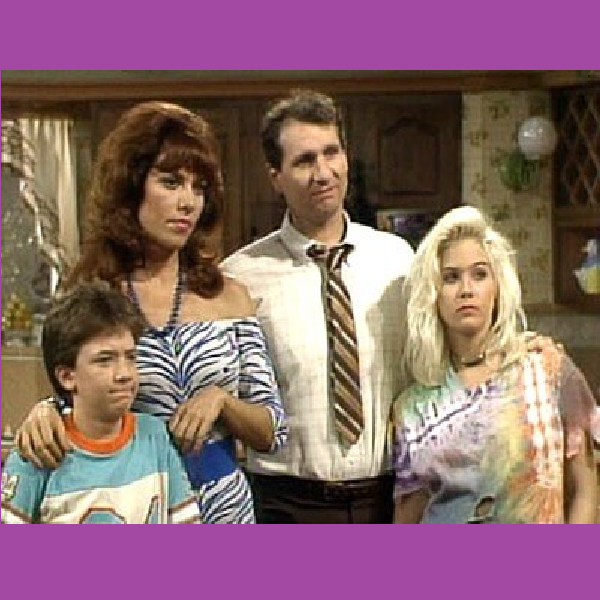What is “Oppositional Defiant Disorder”? Something common to have if you are part of the mini-me generation of narcissistic teenagers. The bottom line is, narcissistic teens reflect thinking of toxic parents and enablers.
It is a big pain in the butt mental condition for a child or teenager to have, ODD. Most parents or custodial grandparents who are forced to deal with a rambunctious or defiant child or teenager will tell you that being forced to endure either being targeted by them or having to witness the damage they cause to others is to them nothing short of absolutely frustrating.
The Mayo Clinic says, “Even the best-behaved children can be difficult and challenging at times. But if your child or teen has a frequent and persistent pattern of anger, irritability, arguing, defiance, or vindictiveness toward you and other authority figures, he or she may have Oppositional Defiant Disorder (ODD).”
If your spider senses tell you that something is just not right about a kid who is acting out and behaving badly in any social environment, trust your instincts. There is definitely something off about kids who display these behaviors. The source makes a good point noting that kids, in general, have narcissistic temperaments by nature. However, with strong nurturing healthy individuals grow up not only learning self-control but also take responsibility for the way they behave in society.
Children who behave poorly typically either have some sort of emerging and extremely dangerous personality disorder like Narcissism, Borderline Personality Disorder, or Histrionic Personality disorder emerging. It’s not a joke. Parents, school teachers, family friends, babysitters, daycare providers, and neighbors who tell traumatized parents or victims of a child with a lousy temperament that “kids will be kids”, “boys will be boys”, or “girls will be girls” are guilty of acting like Flying Monkeys.
In essence, by denying victims the right to speak up and take note that a child’s behavior is caustic, they prevent the child and family from getting help. Minimizing the effects of trauma on targets or collateral damage victims further enables the child (and by default their parents) to abuse other people. It’s enabling, it’s morally wrong, and actually in cases where Flying Monkeys emphatically defend a child’s right to abuse others socially, emotionally, psychologically, or physically actually converts the Enabler into an active (albeit clueless) Abuser themselves.
Children with loving parents grow up learning the value of respecting other people and eschewing entitlement thinking. Those with narcissistic parents grow up to replicate Narcissistic Abuse patterns they witnessed or engaged with when they were children, remaining forevermore doomed to view the world from a closed-minded, egocentric, and ultimately xenophobic perspective that not only functionally incapacitates them emotionally and psychologically but greatly increased the chance they too will damage their own children and future individuals who they — by fate or chance — happen to encounter.
Conform to accepting cruelty and abuse as “normal” or be cast out to fend for yourself in the wild is the narcissistic parent’s dysfunctional family motto. Truly, narcissistic people who under-parent (or conversely over parent) are equally socially and emotionally caustic when it comes to having direct access to parenting, co-parenting, or acting as a role model of any kind for impressionable and vulnerable youth.
Take this case in point: children who, over time, begin to exhibit signs and symptoms of having a mental health condition called Oppositional Defiant Disorder; while some folks would look at the child and blame the parent, the culture, or the society, others will say the child is a proverbial bad apple by nature (rather than by nurture). Children destined to develop Oppositional Defiant Disorder or “ODD” have been reported to start manifesting symptoms of the mental health condition by the time they are Pre-School age toddlers.
DSM-5 criteria for diagnosis of ODD behaviors show a pattern of social traits that:
- Includes at least four symptoms from any of these categories —
- angry and irritable mood;
- argumentative and defiant behavior;
- or vindictiveness
- Occurs with at least one individual who is not a sibling [noting that siblings and family pets are often scapegoats and favoritie abuse targets]
- Causes significant problems at work, school or home
- Occurs on its own, rather than as part of the course of another mental health problem, such as a substance use disorder, depression or bipolar disorder
- Lasts at least six months
DSM-5 criteria for diagnosis of ODD include both emotional and behavioral symptoms.
Angry and irritable mood:
- Often loses temper
- Is often touchy or easily annoyed by others
- Is often angry and resentful
Argumentative and defiant behavior:
- Often argues with adults or people in authority
- Often actively defies or refuses to comply with adults’ requests or rules
- Often deliberately annoys people
- Often blames others for his or her mistakes or misbehavior
Vindictiveness:
- Is often spiteful or vindictive
- Has shown spiteful or vindictive behavior at least twice in the past six months
These behaviors must be displayed more often than is typical for your child’s peers. For children younger than 5 years, the behavior must occur on most days for a period of at least six months. For individuals 5 years or older, the behavior must occur at least once a week for at least six months.
ODD can vary in severity:
- Mild. Symptoms occur only in one setting, such as only at home, school, work or with peers.
- Moderate. Some symptoms occur in at least two settings.
- Severe. Some symptoms occur in three or more settings.
For some children, symptoms may first be seen only at home, but with time extend to other settings, such as school and with friends.
If you consider the possibility that there is no one correct answer as to why any child develops a Cluster B personality type, then truly each child becomes his or her own magical psychological puzzle to unravel. Regarding the current rise of teens who end up emotional and social terrorists in their home environment, the Mayo Clinic says, “As a parent, you don’t have to go it alone in trying to manage a child with ODD. Doctors, counselors, and child development experts can help.”
The source confirms, “Treatment of ODD involves therapy, training to help build positive family interactions and skills to manage behaviors, and possibly medications to treat related mental health conditions.” At no point is an adult (as a parent or role model), a child (as a person with a questionable biological predisposition to a narcissistic personality disorder or anti-social temperament), a narcissistic peer group, the children’s local school system, or their greater cultural heritage in a community sense mentioned in any way, shape, or form to shame, ridicule, caustically blame shift, or invalidate.





